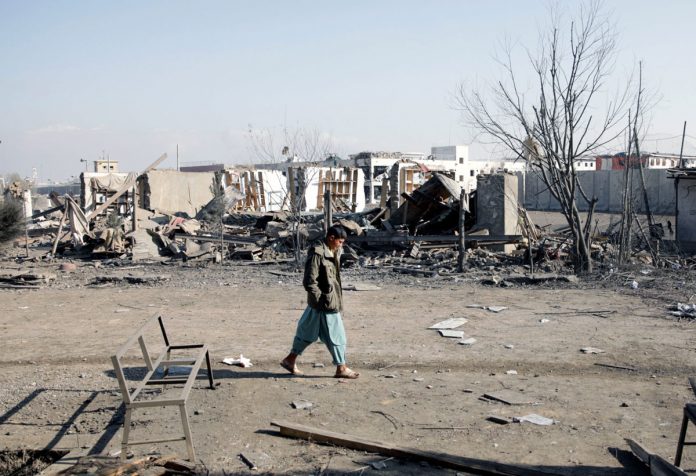In the two months since the fall of Kabul to the Taliban, Europe has borne witness to the tragic consequences of the terror group’s takeover and the images of desolate Afghans desperately clinging to departing planes has been burned into our collective memory.
In just ten weeks, the Taliban have brought Afghanistan to its knees, from an economic, security, humanitarian and societal perspective.
A night of barbarism is descending on Afghanistan.
These extreme religious fanatics have plunged Afghanistan into its worst humanitarian and economic crisis in its history. With foreign fundings frozen, Afghans are struggling to find basic necessities like food, shelter and water.
The women of Afghanistan have also been targeted. Despite empty claims that this new iteration of the Taliban would respect women, the all-male government, composed of war criminals and terrorists has been quick to curtail their rights. Women and girls are prevented from leaving their homes without a chaperone or attending school, under the guise of Covid-19 restrictions. Afghans are experiencing brutal shutdowns of any form of protest and a return to the horrid punishments and revenge killings that plagued the country throughout the 1990s.
The threat of the notorious ISIS-K also looms large over Afghanistan. ISIS-K is a branch of ISIS seeking to instate the Caliphate in the region. Despite the Taliban attempting to appease the militia via their association with the Haqqani network, ISIS-K views the Taliban government as “apostates” and “collaborators” with the West.
The Taliban claim they have the capacity to deal with ISIS alone. Yet, questions remain as to whether they can, in fact, eradicate this threat and if they will do the same with their old ally, Al-Qaeda. The Taliban’s links with Al-Qaeda, indeed, seem to still be extremely strong and continuing to grow.
Despite the Taliban’s promise to prevent terrorist organisations from reforming in the country, some of the most extreme members of the Taliban within the government have proven links to the Haqqani network and Al-Qaeda. In fact, the interim government seems to be welcoming the return of brutal terrorists with open arms.
Faced with an imploding situation in Afghanistan, the EU has generously pledged an aid package to the country, promising that these funds will never reach the corrupt hands of the interim government, and instead will be channelled through international organisations. We recognise countries, not governments, and so while it is important that Europe assists with aid, it is also imperative that the EU refuses to acknowledge the Taliban’s makeshift government as legitimate.
Closer to home, the resurgence of the Taliban and its affiliates poses serious security threats to Europe. The EU must be ready for an upgrade of its terror alert level and stand united to foil terrorist attacks on its soil. One way to do this is by investing more in defense, and I would implore all European nations to increase their security budgets.
In 2019, following years of sustained pressure from the Trump administration for Europe to carry its own weight in NATO, European defence spending hit an all-time high of €186 billion. While a promising development, this figure still only came to 1.4% of the European GDP, well below the 2% minimum that NATO defence ministers agreed to in 2006.
While the Biden administration’s renewed emphasis on transatlantic security cooperation is highly welcome, Europe must not take it as a sign that they can once again lower their guard. Defence spending must be accelerated in the coming years, as a matter of basic prudence, not to mention strategic security autonomy.
As the Taliban have the potential to push tens of thousands of migrants towards Europe, we must recognise the security risk and the fact that some will exploit channels. In particular, it is important to acknowledge the hundreds, if not thousands of violent criminals and terrorists that the Taliban released from prison as they took Kabul.
There must also be close collaboration between interior ministries, security services and police. Rigorous checks and balances are needed to identify migrants leaving the Middle East and it is imperative to share information among allies to ensure the safety of Europe.
We must not underestimate the gravity of the current situation and Europe must prepare for the fallout to ensure the safety and security of the continent. By working collaboratively, we can identify risks and threats considerably faster, otherwise, we risk unsurmountable damage to our nations.


